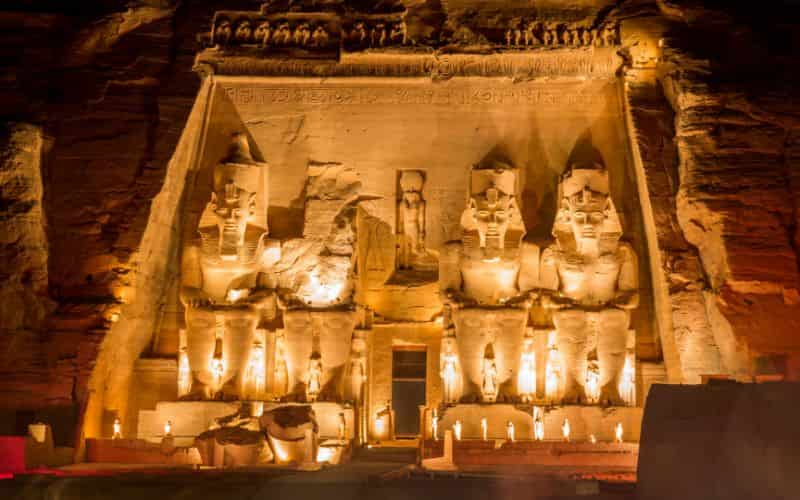


Discover 7 fascinating facts about Ancient Egyptian Culture that highlight its rich history, customs, and unique heritage.

The pyramids, especially the Great Pyramid of Giza, are well-known for their iconic silhouette against the Egyptian landscape, but they looked very different in ancient times. The pyramids were originally covered in white, polished limestone that reflected sunlight, giving them a smooth, gleaming appearance. This coating gave the pyramids a brilliant, radiant glow, visible from miles away. Over centuries, the limestone casings were removed or eroded, leaving the rough stone structure we see today.

The Nile River was Egypt’s lifeblood, sustaining agriculture, transportation, and trade. Ancient Egyptians strategically built their cities along the Nile, relying on its annual floods to irrigate the surrounding farmland. This fertile land, known as the Nile Delta, allowed Egyptians to grow an abundance of crops, such as wheat and barley, which formed the foundation of their economy. The river also enabled trade with neighbouring civilizations, spreading Egyptian goods and influence far beyond their borders.
Ancient Egyptians were known for their iconic eye makeup and elaborate beauty rituals. Makeup wasn’t just for aesthetics; it was deeply rooted in their beliefs about health and protection. Both men and women wore eye makeup made from lead-based minerals like galena (black kohl) and malachite (green copper ore). Egyptians believed that this makeup offered protection from the sun’s glare and helped ward off infections. More than just practical, they saw makeup as a magical defense against evil spirits, believing it had the power to protect the wearer from harm.
Long before modern oral hygiene products, the ancient Egyptians invented their own toothpaste. They crafted mixtures from ingredients like rock salt, mint, flowers, and pepper to clean their teeth. The early Egyptians were very aware of dental hygiene, as their diet of coarse grains and fibers often led to tooth wear and decay. This homemade toothpaste formula, though rudimentary, was surprisingly effective at cleaning teeth and freshening breath.
In ancient Egypt, women enjoyed a level of independence that was uncommon in other ancient societies. Egyptian women could own property, manage businesses, and enter legal contracts. They had the right to initiate divorce, inherit wealth, and even ascend to positions of power, as evidenced by famous female rulers like Hatshepsut and Cleopatra. 6. The Earliest Recorded Peace Treaty Was Made in Egypt
One of the most remarkable achievements of ancient Egyptian diplomacy was the creation of the world’s first recorded peace treaty. This treaty was established between the Egyptians and the Hittites around 1259 BCE after the prolonged Battle of Kadesh. Led by Pharaoh Ramses II, the Egyptians agreed to a truce with the Hittite king, Hattusili III, to end hostilities and foster peaceful relations.
In Egypt, greetings are an essential aspect of social interactions and daily life. Egyptians place great value on polite exchanges, and it’s customary to greet people you meet each day, regardless of familiarity. Common greetings include “Salam Alaykum” (peace be upon you) and “Sabaah el Kheer” (good morning), often followed by inquiries about one’s health and family. Whether through Egypt tour packages or Egypt holiday packages, visiting Egypt allows travelers to see this legacy firsthand—from the craftsmanship behind the pyramids to the centuries-old traditions that Egyptians still cherish.
